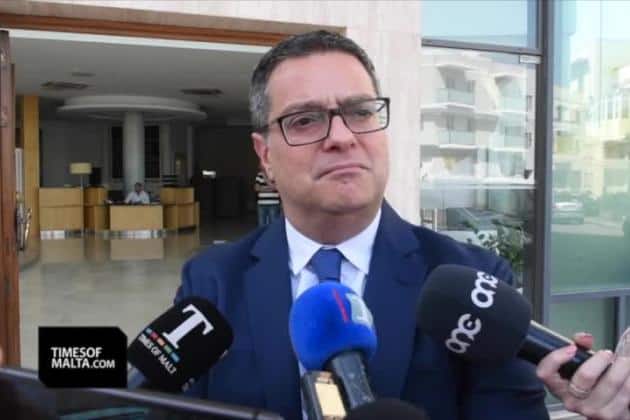
Malta Today surveyed members of the PN and asked them where they stand on Adrian Delia’s leadership and if they prefer him over the parliamentary group. Fifty-seven per cent of party members – the people that would be eligible to replace him – support Adrian Delia and want him to stay on.
That result means that since his election as party leader in the summer of 2017 he has only increased his support base within his own party from 52.7% to today’s 56.8%. That shows just how unsuccessful he has been to make any inroads even in the core support base of the party. His leadership has barely grown at all.
Today’s result is enough to keep Adrian Delia in place. It shouldn’t but it is. Remember that this survey asks the question would you rather have Adrian Delia or not have him. It does not propose an alternative. We do not know how the tesserati would respond if Adrian Delia was facing a challenge by one, two or more challengers. And, I suppose, we won’t know for a long time.
The survey’s respondents were less enthusiastic about the parliamentary group. By definition there are always alternatives to sitting MPs. There are always more candidates than seats and party members always tend to have a wandering eye about which candidate they choose to support for election to parliament. But there’s only one party-leader and no one has asked to be considered to replace him.
The detachment between people who would sign up to join a party and people who participate in democracy by voting in elections could never be more glaring. But it also real. Political parties are perfectly entitled to choose their own leaders. They can then propose those leaders to the electorate and the electorate is perfectly entitled to reject them.
The British Labour Party chose Jeremy Corbyn. US Democrats are flirting with the idea of choosing Bernie Sanders. They make those choices because those candidates sound closer to what they – the party faithful – feel. But candidates cast in the mould of the members of their party do not reach out to voters of the other side with compromise and moderation so that they can secure a majority coalition.
Adrian Delia sounds exactly like what around two-thirds of the members of the Nationalist Party want to hear.
They will continue to hear it for a while. The fact is Adrian Delia’s support is too material to force him out without his own agreement and too weak for him to ever win an election. This middling space of unshakeable balance is the more destructive for having greater longevity.
We will not wake up from this nightmare for a long time. The PN might never emerge.
The few remaining lights in the PN will be suffocated by the futility of their attempts to bring back some sense. And Adrian Delia will cough and splutter through the frustrating fumes of wasted energy of trying to make inroads in the areas where he has no support and failing.
If this was an 80-20 situation, the 80 would eventually absorb the 20 either way. If Adrian Delia enjoyed 80% support in the party membership, he’d have enough critical mass to eventually bring the whole party together. If Adrian Delia faced an opposition of 80%, he’d leave or be made to leave. And the party would come together.
But this 50:50, give or take, ratio is a cold war balance with an ever-present doomsday scenario of mutually assured destruction.
This is where it gets ugly. It’s where magnanimity becomes an unaffordable luxury.
And it’s when Adrian Delia – empowered by the limited extent of his authority and hamstrung by his inability to sustain it – becomes a corrosive, even destructive force.
Adrian Delia will say today’s Malta Today survey is good news for him. If the limit of his ambition is to be the last leader of the Nationalist Party he can go ahead and think so as well.